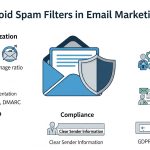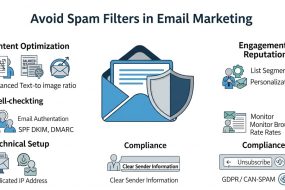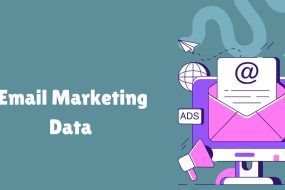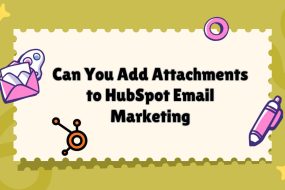
You’ve probably heard the claims: “Email marketing delivers $36 for every $1 spent!” or “Email is 40 times more effective than social media!” These statements might sound too good to be true, leaving you wondering if email marketing is actually legitimate or just another overhyped digital marketing trend.
The short answer? Email marketing is absolutely legitimate—but like any marketing strategy, its effectiveness depends on how you execute it. While some businesses struggle to see results, others generate substantial revenue through well-crafted email campaigns. The difference lies in understanding what makes email marketing work and avoiding the common pitfalls that lead to poor performance.
This post will examine the evidence behind email marketing’s reputation, explore why it works so well for some businesses, and help you determine whether it’s worth investing your time and resources.
The Numbers Don’t Lie: Email Marketing Statistics

Email marketing’s legitimacy becomes clear when you look at the data. According to the Direct Marketing Association, email marketing does indeed generate an average return on investment of $38 for every dollar spent. This impressive ROI stems from email’s unique combination of low costs and high reach potential.
Consider these additional statistics that support email marketing’s effectiveness:
- Email reaches 4.03 billion users worldwide, representing over half the global population
- 81% of small and medium businesses rely on email as their primary customer acquisition channel
- Email campaigns generate 50% more sales-ready leads than other marketing methods
- Personalized email campaigns can increase transaction rates by up to 600%
These numbers reflect real business outcomes, not theoretical projections. Companies across industries—from e-commerce retailers to SaaS startups—consistently report measurable results from their email marketing efforts.
Why Email Marketing Works So Well
Email marketing’s legitimacy stems from several inherent advantages that other marketing channels struggle to match.
Direct Access to Your Audience
Unlike social media platforms where algorithm changes can limit your reach, email gives you direct access to your subscribers’ inboxes. When someone provides their email address, they’re explicitly granting you permission to communicate with them. This creates a more intimate connection than other marketing channels.
Cost-Effectiveness and Scalability
Email marketing requires minimal upfront investment compared to paid advertising or traditional marketing methods. Once you have an email service provider, you can reach thousands of subscribers for a fraction of what you’d spend on other channels. The costs remain relatively stable whether you’re emailing 100 or 100,000 people.
Measurable Results
Email marketing platforms provide detailed analytics that shows exactly how your campaigns perform. You can track open rates, click-through rates, conversion rates, and revenue generated. This transparency makes it easy to identify what works and optimize your strategy accordingly.
Personalization Capabilities
Modern email marketing tools allow for sophisticated personalization beyond simply inserting someone’s first name. You can segment your audience based on behavior, preferences, purchase history, and demographics, then send targeted messages that resonate with each group.
Common Misconceptions About Email Marketing
Despite its proven effectiveness, several misconceptions persist about email marketing’s legitimacy.
“Email is Dead”
This myth has circulated for years, yet email usage continues to grow. While communication habits have evolved, email remains the preferred method for business communications and marketing messages. Younger generations might use email differently than older ones, but they still check their inboxes regularly.
“It’s Just Spam”
Legitimate email marketing is permission-based and provides value to recipients. Spam involves sending unwanted messages to purchased lists or scraped email addresses. When done correctly, email marketing strengthens relationships and provides useful information to people who want to receive it.
“Social Media Has Replaced Email”
Social media and email serve different purposes and work best when used together. Social media excels at building awareness and fostering community, while email drives conversions and nurtures long-term relationships. Many successful businesses use both channels strategically.
What Makes Email Marketing Campaigns Fail
Understanding why some email marketing efforts fail helps explain why others succeed spectacularly.
Poor List Building Practices
Buying email lists or adding people without permission leads to low engagement rates and spam complaints. Legitimate email marketing focuses on attracting subscribers who genuinely want to hear from you.
Lack of Value in Content
Emails that only promote products without providing useful information quickly lose subscribers’ attention. Successful email marketing balances promotional content with valuable insights, tips, or entertainment.
Inconsistent Sending Schedule
Sporadic email sending confuses subscribers and reduces engagement. Consistent communication helps build trust and keeps your brand top-of-mind.
Ignoring Mobile Optimization
Over 60% of emails are opened on mobile devices, yet many businesses still send emails that don’t display properly on smartphones. Mobile-optimized emails are essential for maintaining high engagement rates.
Industries Where Email Marketing Thrives
Email marketing proves particularly effective in certain industries, further demonstrating its legitimacy.
E-commerce businesses use email to recover abandoned carts, promote new products, and encourage repeat purchases. Fashion retailers, electronics stores, and subscription services often generate 20-30% of their revenue through email marketing.
Software companies leverage email to nurture leads through complex sales cycles, onboard new users, and reduce churn. Educational email sequences help prospects understand product benefits before making purchasing decisions.
Professional services firms use email newsletters to demonstrate expertise and stay connected with clients and prospects. Law firms, consultants, and agencies often secure new business through consistent email communication.
Non-profit organizations rely heavily on email to communicate with donors, volunteers, and beneficiaries. Email campaigns drive fundraising efforts and keep supporters engaged with the organization’s mission.
How to Determine if Email Marketing is Right for Your Business
Email marketing works for most businesses, but certain factors influence its potential effectiveness for your specific situation.
Consider your customer relationship timeline. Businesses with longer sales cycles or repeat purchase patterns typically see better email marketing results. If customers make one-time purchases and never return, email marketing might provide less value.
Evaluate your content creation capabilities. Successful email marketing requires consistent, valuable content. If you struggle to create regular blog posts or social media updates, email marketing might present similar challenges.
Assess your audience’s email habits. While most people check email regularly, some industries or demographics might prefer other communication methods. Research your target audience’s preferences before investing heavily in email marketing.
Getting Started: Best Practices for Legitimate Email Marketing
If you decide email marketing is worth pursuing, following these best practices ensures you build a legitimate, effective program.
Start with a quality email service provider that includes features like list segmentation, automation, and detailed analytics. Popular options include Mailchimp, Constant Contact, and ConvertKit.
Focus on organic list building through lead magnets, content upgrades, and website opt-in forms. Avoid purchasing lists or adding people without explicit permission.
Develop a content strategy that balances promotional messages with valuable information. The 80/20 rule suggests 80% of your emails should provide value, while 20% can be directly promotional.
Test different subject lines, send times, and content formats to optimize your results. Most email platforms include A/B testing features that make this process straightforward.
The Verdict: Email Marketing’s Legitimacy

Email marketing is undoubtedly legitimate and remains one of the most effective digital marketing strategies available. The combination of high ROI, direct audience access, and measurable results makes it an essential tool for most businesses.
However, success requires proper execution, consistent effort, and a focus on providing value to subscribers. Businesses that approach email marketing strategically and ethically consistently see positive results, while those that cut corners or ignore best practices often struggle.
If you haven’t explored email marketing for your business, the evidence strongly supports giving it a try. Start small, focus on building a quality subscriber list, and consistently deliver valuable content. The legitimacy of email marketing becomes apparent once you begin seeing the results for yourself.


















No Comments